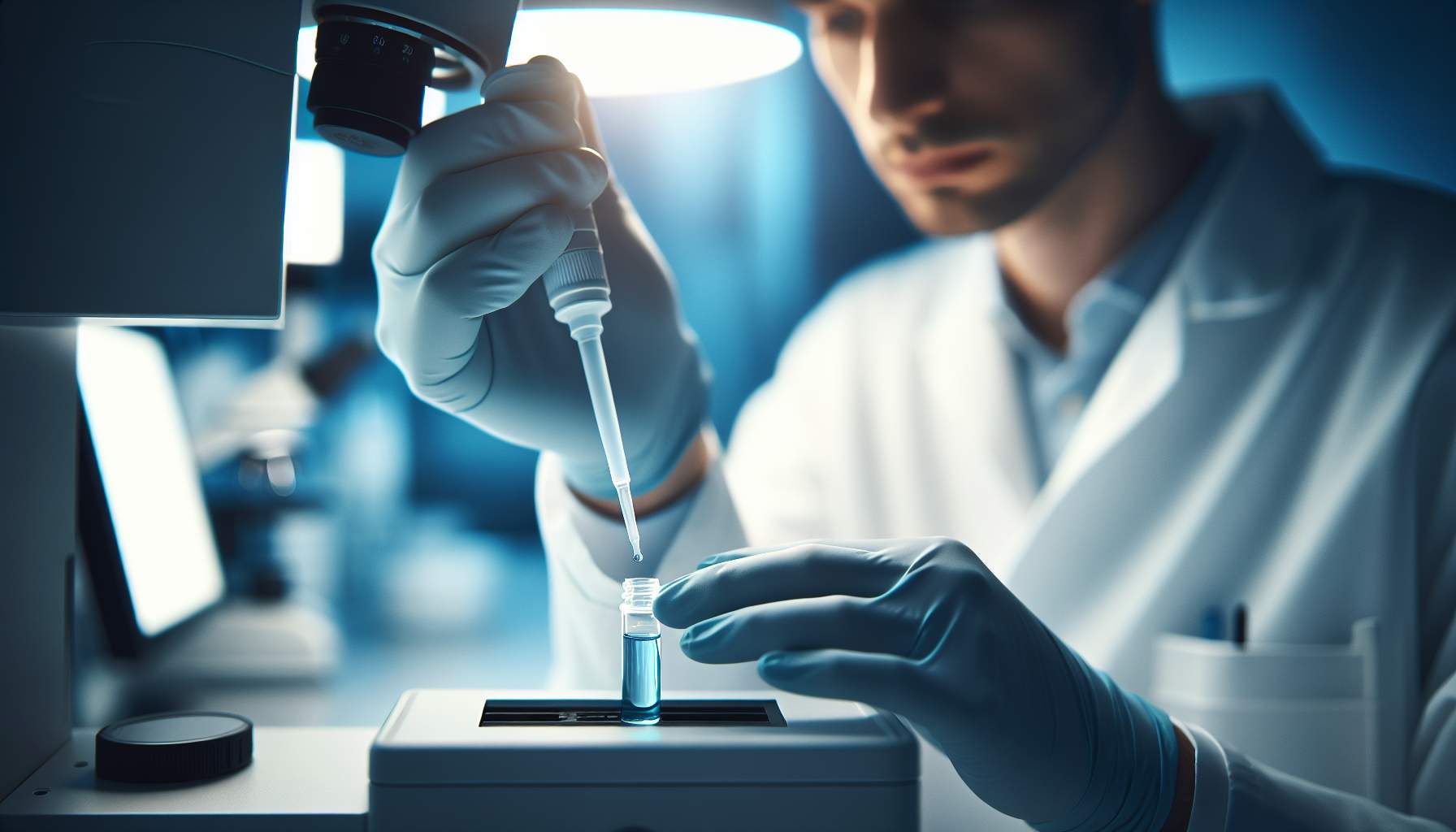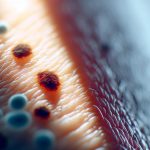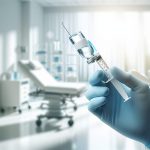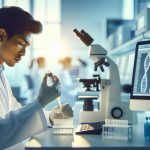Karius stands at the forefront of bringing groundbreaking solutions to combat infectious diseases through its innovative blood test. This cutting-edge technology offers a glimpse into an individual’s microbial environment with just one sample, empowering healthcare providers to make swift and informed decisions regarding treatment. Under the leadership of CEO Alec Ford, Karius is spearheading the charge towards a future where infectious diseases pose less of a threat to public health.
The company’s pioneering approach in using liquid biopsy for detecting infectious illnesses marks a significant leap forward in medical science. By offering quick insights into pathogens affecting a patient, this non-invasive method is revolutionizing how doctors tackle infections, providing hope for faster recovery times and better overall outcomes. The essence of Karius’ mission lies in its commitment to harnessing genomic data for fighting pathogens more efficiently, making strides towards extinguishing the fear and impact of infectious diseases worldwide.
The Origins and Development of Karius: From Inspiration to Progress
The remarkable journey of Karius‘s inception traces back to the prestigious lab led by Dr. Stephen Quake at Stanford University, a place where groundbreaking research on cell-free DNA laid the foundation for this innovative venture. Initially applied in prenatal testing, this technology significantly improved non-invasive procedures, setting a new standard in healthcare. Its application later expanded into oncology, revolutionizing how doctors detect and understand cancer without invasive tissue sampling.
Drawing inspiration from these advancements, the minds behind Karius asked a pivotal question: could microbial cell-free DNA be used to diagnose infections without direct samples from infected tissues? This inquiry was not merely academic; it stemmed from an urgent need demonstrated through a heart-wrenching case at Stanford involving a young patient with both cancer and an infection that eventually proved fatal despite researchers’ efforts.
Motivated by this tragedy and committed to preventing similar outcomes, they focused on developing a tool that could swiftly identify infections, especially in those with weakened immune systems. Their dedication bore fruit as the test they developed gained approval and became available commercially. Recognized by both the College of American Pathology and New York State, their innovation is now aiding over 200 hospitals monthly. These institutions leverage Karius’s technology to pinpoint infections in vulnerable patients, including those battling HIV, cancer, autoimmune diseases—essentially anyone with compromised immunity.
In essence, what started as an ambitious idea in a university lab has transitioned into a real-world solution saving lives daily by providing critical information faster and more safely than traditional methods ever could.
Your main interests
Educating our clientele on the critical issue of infections is a top priority for us. It’s surprising for many to discover that infections, rather than the cancer itself, are the leading cause of death among those battling cancer. Specifically, in cases involving blood cancers, over half succumb to infections. This reality underscores the peril infections pose to successfully treating cancer.
There’s always a buzz when new cancer treatments hit the scene – be it innovative oral treatments, intravenous methods, genetic interventions, or cutting-edge technologies like CRISPR. However, what often goes underappreciated is that failing to treat cancer isn’t the biggest danger; it’s battling infections that poses the greatest risk.
Our goal is straightforward: assist healthcare providers in swiftly pinpointing infection sources in patients at risk. By doing so, we’re not just tackling a side issue; we’re directly influencing their overall treatment journey. Identifying and addressing these infections promptly can make all the difference in enabling patients to continue with their primary cancer therapies, ultimately enhancing their chances of a successful recovery.
What sets Karius apart from other diagnostic firms?
In the realm of diagnosing infectious diseases, Karius stands out for its groundbreaking approach. Unlike traditional methods that require taking samples from the body through procedures like lung biopsies or throat swabs, Karius simplifies the process immensely. It leverages a single blood draw to uncover what’s causing an infection. This is a game-changer because it means people don’t have to undergo uncomfortable and sometimes risky procedures just to find out what’s making them sick.
What sets Karius apart is its use of cutting-edge technology to detect microbial DNA floating in the bloodstream. Even if these fragments are scarce, Karius can spot them thanks to its sophisticated analysis techniques. The secret sauce? An ingenious combination of artificial intelligence and advanced genetic sequencing that sifts through DNA data, distinguishing between human DNA and pathogens with precision.
The implications of this are profound. With over 1,000 potential culprits on its radar—from bacteria and viruses to fungi—Karius has the breadth and depth needed to identify even the most elusive infections. This capability not only speeds up diagnosis but also opens doors to treating conditions that were previously hard to pinpoint.
Moreover, by continually expanding its database of pathogens, Karius remains at the forefront of infectious disease diagnostics, promising clearer insights into illnesses that confound traditional testing methods. In essence, this innovative test ushers in a new era where diagnosing infections is quicker, less invasive, and more precise than ever before.
Significant achievements since Karius was started

In the medical community, there’s a constant buzz about how diagnostic processes impact patients, particularly those battling cancer. These individuals, including young children, face formidable challenges not just from their primary illness but also from infections that pose serious risks to their lives. The journey to pinpoint the source of these infections is often fraught with trial and error. Clinicians typically cycle through multiple diagnostics—ranging from blood cultures to serology and various microbiology tests—without success. This process can drag on for days or even weeks without yielding concrete answers.
Enter the Karius test, a beacon of hope for both patients and healthcare providers. Its ability to deliver precise results within 24 hours of receiving a sample has been nothing short of revolutionary. By identifying the specific pathogen responsible for an infection quickly, it enables doctors to tailor treatments more effectively than ever before.
The reality is stark: traditional methods leave up to 80% of hospital infections unspecified, leading doctors to resort to broad-spectrum antibiotics in desperation. This scattergun approach not only increases antibiotic resistance but also burdens patients with unnecessary side effects due to overmedication.
Moreover, these wide-ranging anti-infective treatments aren’t without repercussions—they exert tremendous pressure on vital organs like kidneys, hearts, and livers. Thus, narrowing down treatment options as swiftly as possible isn’t just ideal; it’s critical for patient safety.
Ultimately, harnessing advanced diagnostic tools like the Karius test doesn’t merely streamline treatment—it signifies a gigantic leap towards more compassionate care by reducing guesswork and minimizing undue strain on patients’ bodies.
What do you think is the biggest biotech advancement recently?
The evolution of molecular diagnostics has been nothing short of revolutionary, particularly in areas such as prenatal care, cancer treatment, and infectious diseases. Decades ago, the medical world was introduced to a groundbreaking test that could determine the aggressiveness of breast cancer in women. This innovation marked just the beginning of what was possible with advanced diagnostic technologies.
Fast forward to today, and we’re witnessing an era where liquid biopsies are becoming a more common alternative for detecting certain cancers through blood tests instead of traditional tissue biopsies. The adoption of screenings for inherited breast cancer is another leap forward, demonstrating how far we’ve come in understanding and diagnosing cancer at its genetic roots. However, there’s still ground to cover before techniques like analyzing cell-free DNA in liquid biopsies become mainstream.
Among the most exciting developments are tests that can detect minimal residual disease or identify specific genetic deficiencies related to cancer. These advances highlight the power of genomic technologies in transforming our approach to fighting oncology-related diseases.
Cancer touches nearly everyone in some way; it’s a universal battle that draws significant attention towards advancements in treatment methods. The enthusiasm around conquering this disease serves as a strong foundation for exploring how these sophisticated tools can be applied beyond oncology.
There lies an immense opportunity to extend these innovations into other critical areas such as mental health and managing infectious diseases. By leveraging advanced genomics, healthcare professionals can drastically improve patient care outcomes across various medical fields. It’s an exciting time for medicine as we stand on the cusp of deploying these powerful diagnostic tools beyond their initial applications, promising a future where personalized treatment becomes a norm across all facets of healthcare.
What current trends and technologies do you find intriguing?
In today’s rapidly advancing world, it’s become crucial for individuals to accurately gauge the efficiency of new technologies. At the core of this evolution, Karius aims to revolutionize how we tackle infections. The company is on a mission to assist in the development of novel anti-infective treatments by pinpointing both the existence and cause of infections. This approach has the potential to significantly enhance the effectiveness of clinical trials.
Moreover, there’s an increasing awareness about balancing clinical improvements with economic advantages. It’s no longer sufficient for a medical intervention to merely show clinical promise without demonstrating its positive impact on healthcare costs. Karius is deeply invested in illustrating how their diagnostic test not only reduces mortality but also brings down healthcare expenses through various means—be it minimizing hospital stays or reducing the need for multiple consultations and invasive procedures.
This dual focus on improving health outcomes while simultaneously cutting costs is vital for any groundbreaking technology looking to make a lasting impact in our healthcare system. Such innovations are poised to play a pivotal role in shaping future medical practices, ensuring they’re both effective and sustainable.
What do you think will happen with biotechnology in the next five years?
The current dialogue surrounding healthcare emphasizes the critical role of technology in tailoring treatments to individuals. The general consensus is that a universal approach to medical care falls short of delivering optimal outcomes. This realization underlines the importance of personalized medicine, particularly its initial applications within oncology and infectious diseases. However, the potential to expand these customized health solutions into broader medical fields is incredibly promising. By harnessing precise information and advanced technologies, we stand on the brink of revolutionizing how care is delivered across various branches of medicine, ensuring that patients receive the most effective therapies tailored specifically to their needs.




















